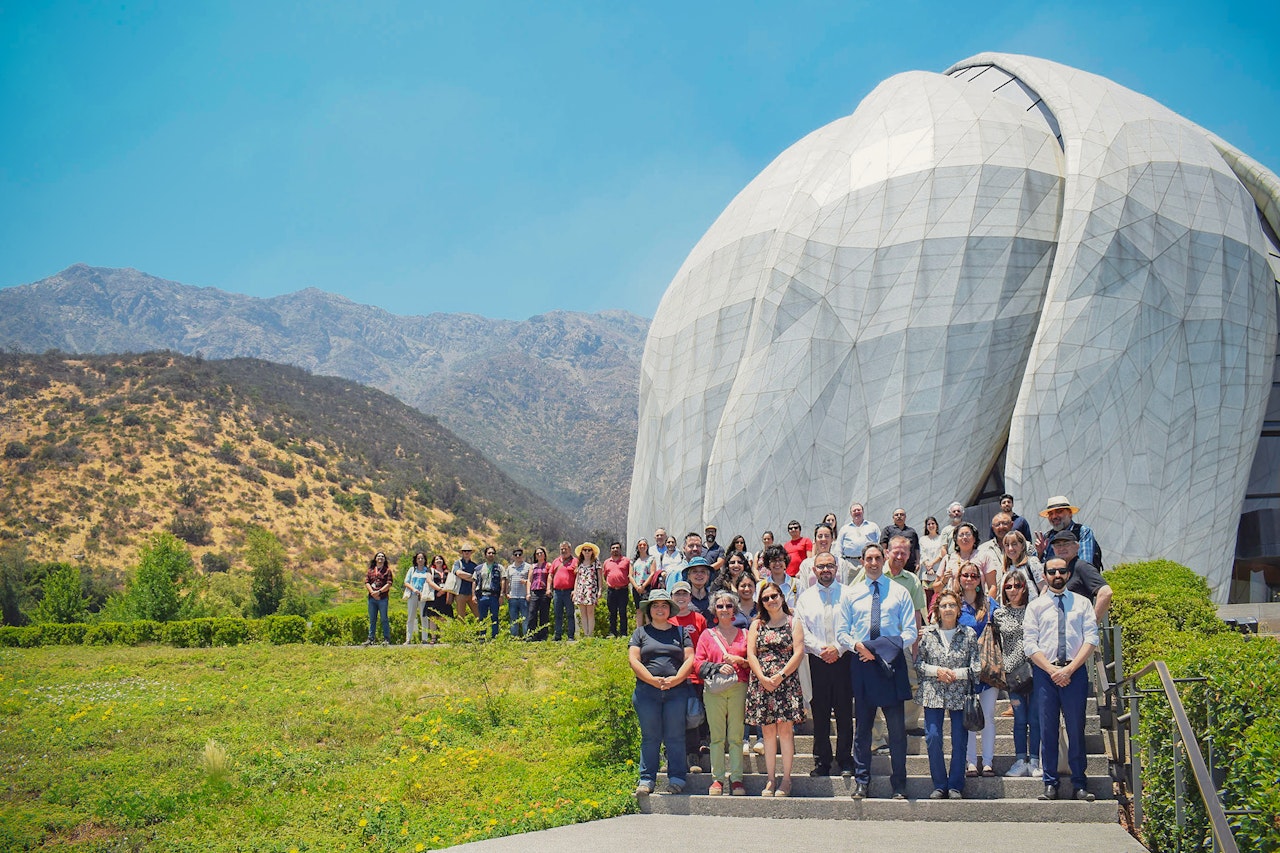Chile temple
Promoting a harmonious relationship with the natural world
The Bahá’í temple, which has been promoting environmental stewardship, was host to a gathering for both public and private sectors to reflect on a conservation project.

The Bahá’í temple, which has been promoting environmental stewardship, was host to a gathering for both public and private sectors to reflect on a conservation project.

SANTIAGO, Chile — The site of the Bahá’í House of Worship in Santiago, Chile, was recently host to a gathering that marked a significant milestone in a conservation project aimed at safeguarding the diverse ecosystems in the Andes Mountains.
The Global Environment Facility (GEF) Mountain Project, which was initiated six years ago, has engaged the public and private sectors to protect the natural environment and cultural heritage of the Santiago Metropolitan and Valparaíso regions, including in Peñalolén, where the temple is situated.
Carolina Leitao Alvarez, the mayor of Peñalolén, expressed her appreciation for the role the temple has played in promoting environmental stewardship in the region since its inauguration. “These grounds have a special meaning because… the efforts [of the Bahá’í community] to restore these foothills has been very important,” she said.
Maximiliano Cox Larrain, a representative of the GEF project, spoke about the steps taken to reforest and conserve the flora and fauna on the temple site, saying: “By using native plants, minimizing visual obstructions, and engaging in ecological restoration, the design and landscaping of the gardens create a tranquil space in which the city finds silence, and visitors can connect with nature. This connection inspires meaningful conversations and invites you to approach the temple in a state of meditation and reflection.”
Other attendees included the Undersecretary of the Ministry of the Environment, as well as representatives of the United Nations Environment Programme, the GEF Mountain Project, and civil society organizations
Veronica Oré, the director of the House of Worship, explained in her remarks that beyond conservation efforts on the site, the Bahá’í community has sought to further support the project by creating spaces for conversations that explore a holistic vision of progress grounded in spiritual principles such as the oneness of humanity.
“The planet, its peoples, and its creatures have suffered greatly from a materialistic mindset that views the individual as purely economic and a self-interested unit, competing with others to accumulate an ever-increasing share of the world’s material resources,” she said.
Mrs. Oré explained that by viewing progress through the lens of the oneness of humanity, one can see with greater clarity that true prosperity must include the flourishing of all people and the planet that we all share. This suggests that material progress alone is not enough, and that true progress must also include the spiritual and moral development of individuals and society.
Reflecting on the event, Luis Sandoval, a member of Chile’s Bahá’í Office of External Affairs, says that the House of Worship has played an important part in inspiring this vision, “catalyzing people’s reorientation toward their spiritual nature.”
The Bahá’í temple, says Mr. Sandoval, “has acted as a point of attraction for those seeking to work for the renewal of society.”